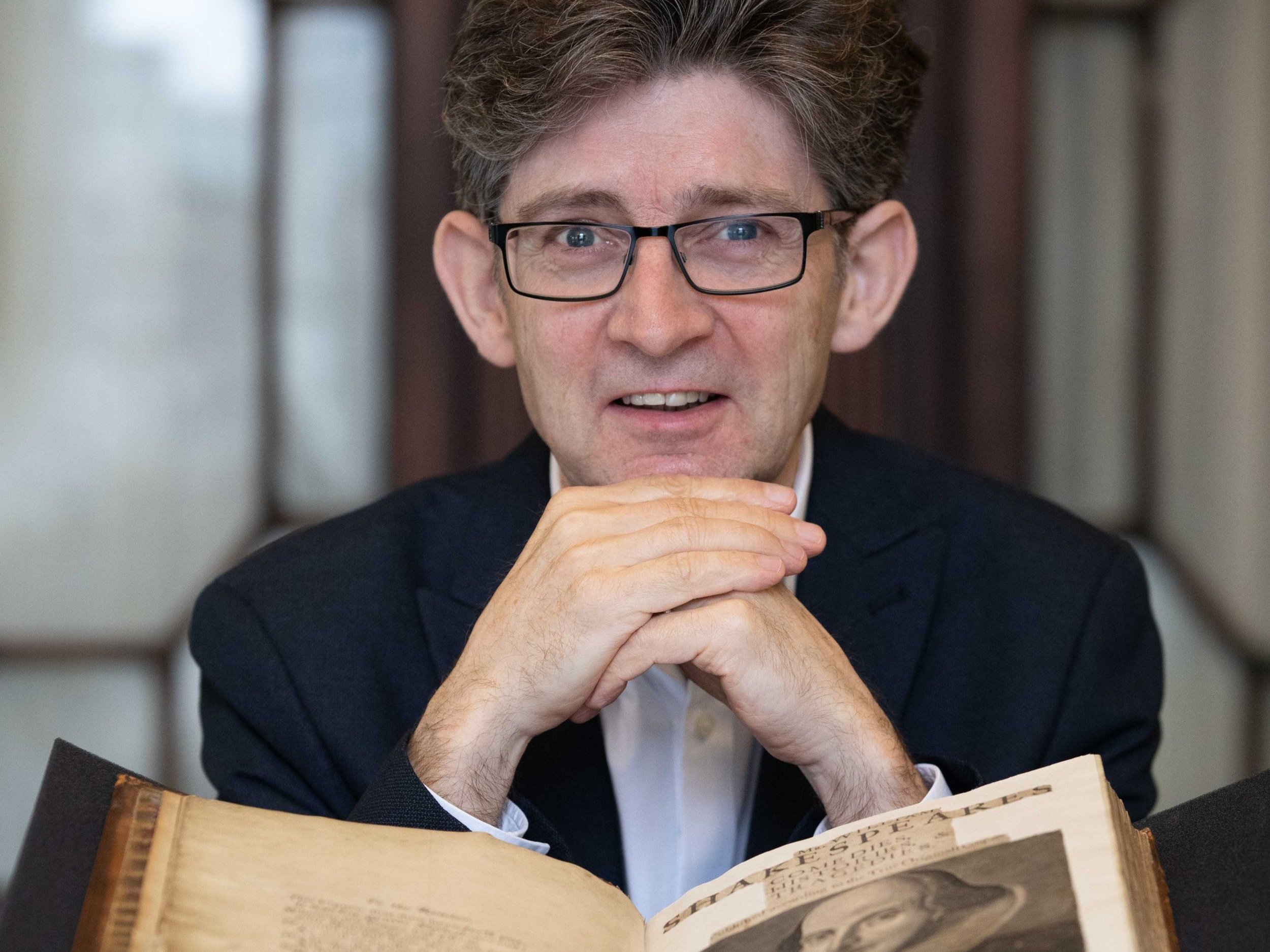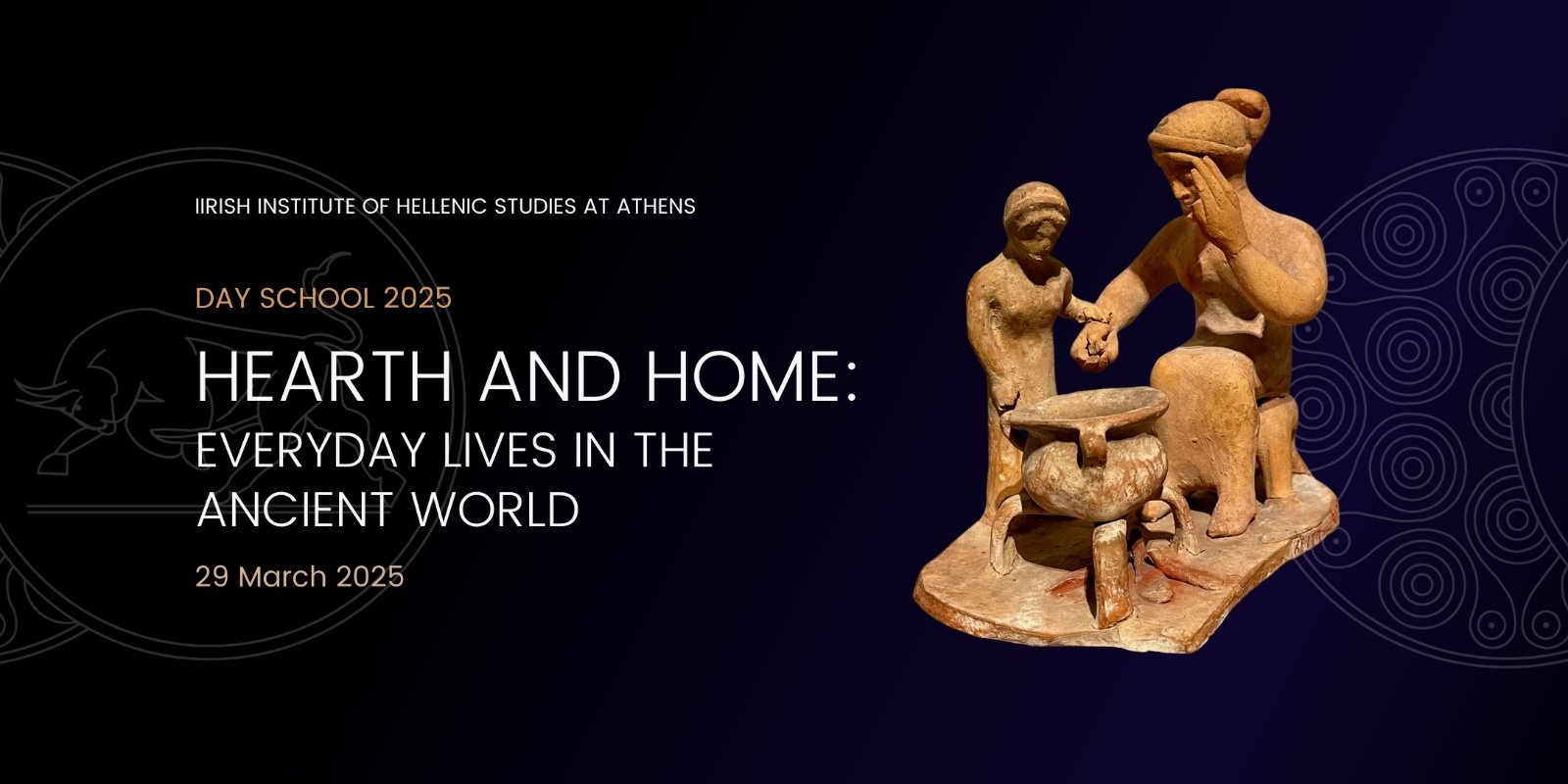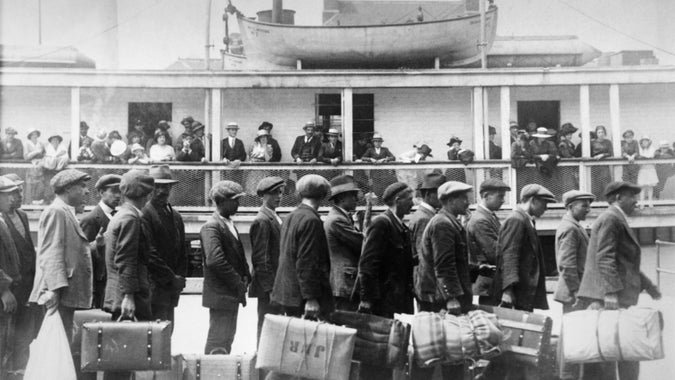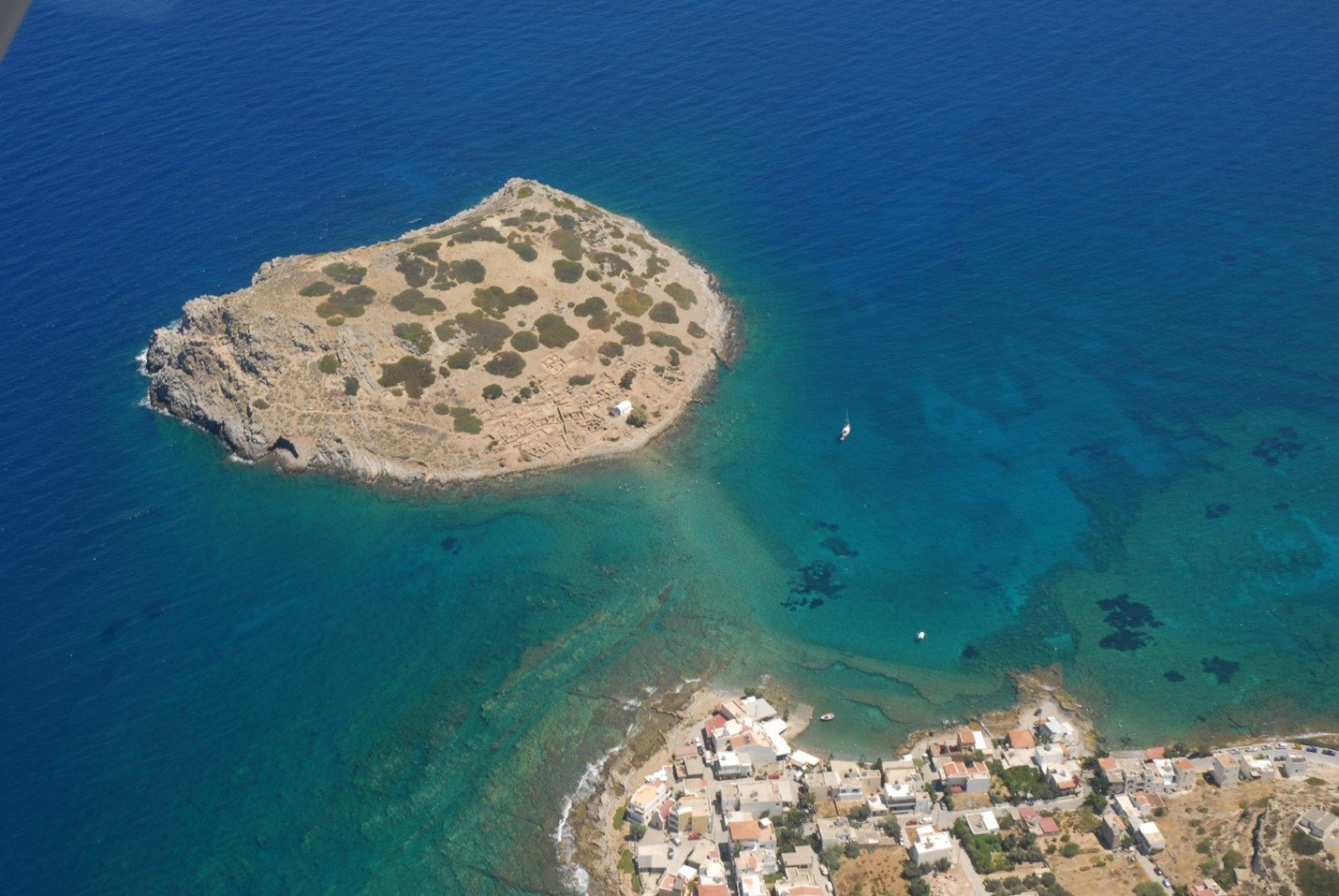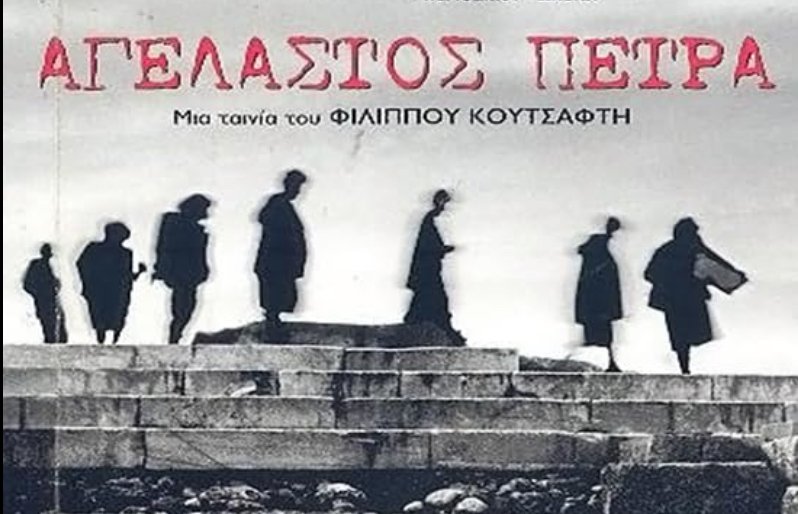IIHSA Events

Cultural Heritage Management Seminar Series 9: Eleanor Neil, Posthumanism and Community Archaeology in a Contested Landscape
You are invited to our Cultural Heritage Management Seminar Series 9. This online talk on May 22, 2025 at 7.00 pm (EET), 5 pm (Irish time), 12 pm (EST) is given by Dr Eleanor Neil (Aarhus Unversity, Centre for Urban Network Evolutions ) on "Posthumanism and Community Archaeology in a Contested Landscape".
Abstract
Posthumanism challenges traditional, hierarchical, and anthropocentric structures by emphasizing relationality, multivocality, and the agency of both human and nonhuman actors. In a community archaeology context, this means moving away from rigid distinctions between experts and non-experts and acknowledging the active role of landscapes, material culture, and heritage in shaping social identities.A key contribution of posthumanist community archaeology is its ability to break down binary thinking—such as expert/non-expert, past/present, and human/nonhuman—to create more fluid, participatory models of archaeological practice and interpretation.
Within definitions and conceptions of community archaeology, much ink has been spilled on what is classified as archaeology. Does non-invasive survey count? What about museum curation? Do artistic responses have a role to play? These are all valuable and creative responses to the problem of engagement. Much less effort, however, has been spent defining what constitutes a community and how that definition should be approached.
In contested landscapes like Cyprus—where divisions persist due to political conflict and contested heritage claims—the questions around defining communities become particularly thorny. It is in this context that approaches such as posthumanism, with their reimagination of hierarchical definitions, are particularly relevant. By embracing multivocality and co-creation, posthumanist approaches can help reimagine archaeology as a collaborative, socially transformative practice that acknowledges historical trauma while seeking pathways toward shared understanding and co-creation.
Author bio
Dr. Eleanor Q. Neil completed her doctoral research at Trinity College Dublin last year, examining community archaeology in Cyprus. She has wide ranging research interests that include digital methods for community engagement, cultural policy, and the historiography of archaeology. Currently she is employed by Aarhus University’s Centre for Urban Network Evolutions (Denmark), exploring archival and legacy data from 19th- and 20th-century archaeological missions in the Near East.
Registration details: https://www.eventbrite.com/e/1341761858839

Cultural Heritage Management Seminar Series 6: Ros Ó Maoldúin, The Institute of Archaeologists of Ireland: Representation, Collaboration and Advocacy
This seminar is the sixth in our series of theoretical seminars on the topic of ‘Cultural Heritage Management: Laws, regulations, innovative management practices, participation of local communities, the impact of climate change on archaeological sites and European initiatives’. It is directed at graduate students who are interested in the topic.
Abstract: The Institute of Archaeologists of Ireland (IAI) is the representative all-island organisation for professional archaeologists working in Ireland and Northern Ireland. Through the representation of our members, our aim is to advance and strengthen the profession of archaeology in Ireland. Our vision is that we will have a vibrant and sustainable archaeological profession that actively contributes to the protection of our archaeological resource, which in turn contributes to the social and economic wellbeing of the entire community. This seminar will begin with a short history of our Institute and then provide a brief overview of our current initiatives, future strategy and plans.
Dr Ros Ó Maoldúin is Chair of the Institute of of Archaeologists of Ireland
Date: December 12th 2024 at 17.00 (Ireland)/19.00 (Greece)/12.00 pm (standard eastern time). The seminar will take place online.
In order to participate, please register by contacting us at irishinstitutegr@gmail.com

Cultural Heritage Management Seminar Series 5: Muiris O’Sullivan, Exploring heritage management issues in Ireland
This seminar is the fifth in our series of theoretical seminars on the topic of ‘Cultural Heritage Management: Laws, regulations, innovative management practices, participation of local communities, the impact of climate change on archaeological sites and European initiatives’. It is directed at graduate students who are interested in the topic.
Abstract: This seminar deals with two locations in Ireland, one the World Heritage Site at Brú na Bóinne, county Meath, and the other a less well-known site in Knockroe townland on the border between counties Kilkenny and Tipperary. Both are passage tomb complexes, megalithic sites from the centuries immediately before 3,000 BCE, and both occur in areas of primarily agricultural activity. Both attract considerable numbers of visitors at the winter solstice, and both feature megalithic art from the Stone Age. The associated conservation and management issues are similar but not identical. The seminar is particularly concerned with the differences, how they might be explained and whether they have implications for future policy.
Muiris O’Sulivan is Emeritus Professor of Archaeology at University College Dublin
Date: Thursday April 4th 2024, at 17.30 (Ireland)/19.30 (Greece)/12.30 pm (standard eastern time). It will take place online.
In order to participate, please simply register via EventBrite: https://www.eventbrite.com/e/4th-theoretical-seminar-tickets-872361345267?aff=oddtdtcreator
For any questions contact us at irishinstitutegr@gmail.com

Cultural Heritage Management Seminar Series 4: P. Kassimi, I. Nanopoulou, I. Tzonou, ‘Corinth’s Master Plan: A Collaborative Project Towards an Inclusive, Interactive and Sustainable Heritage’
This event is postponed to a future date.
This seminar is the fourth in our series of theoretical seminars on the topic of ‘Cultural Heritage Management: Laws, regulations, innovative management practices, participation of local communities, the impact of climate change on archaeological sites and European initiatives’. It is directed at graduate students and early career researchers who are interested in the topic.
Abstract: People have been living in Corinth for the last nine millennia. A diverse, multi-ethnic and polyglot community has resided here since antiquity, and in the modern day this diversity persists as locals interact daily with tourists, students, and scholars from all over the world. Since 1896, archaeologists affiliated with the American School of Classical Studies have been exploring the site in a productive collaborative effort with local archaeologists, technicians, and workers under the auspices of the Greek Ministry of Culture and Sports and the Ephoreia of Antiquities of Corinthia. Our day-to-day work on site serves to emphasize that it is a creation of people before us and like us. Corinth’s universal value for human history and patrimony is exactly this coexistence of the archaeological landscape with a thriving living community in a most advantageous setting in terms of resources and potential for development. A master plan for this landscape was initiated in 2001 and has been building momentum in the last 8 years. Three bodies, the Ephoreia of Antiquities of the Corinthia with the Ministry of Culture, the ASCSA-Corinth Excavations, and the architectural office of Papagiannis and Associates, are the leading forces behind the process to make the site enjoyable and understandable to both locals and tourists, archaeologists, and the general public. In this seminar we discuss how this whole process of the master plan has been evolving as the interests of the various stakeholders are reconciled: for example, the architects’ interest in integrating the site with the modern community; the archaeologists’ interest in preserving the complexity of the site for future research, and at the same time inviting the public to actively participate rather than passively consume knowledge; and the ministry’s interest in prioritizing site access and clarity for the sake of tourism. In Corinth we aspire to share our knowledge of the past with the local and the global community for an inclusive, interactive and sustainable heritage. We believe our shared humanity from the past to the present can help us educate future generations for a world of empathy.
Panagiota Kassimi, Director of the Ephorate of Antiquities of Corinthia.
Ivi Nanopoulou, Head of the architectural firm, Papagiannis and Associates. Design consultant for the management plan.
Ioulia Tzonou, Associate Director of the Corinth Excavations of the American School of Classical Studies.
The seminar will take place on Thursday, February 8th at 19.00 pm (Greece time), 17.00 (Ireland time), 12.00 pm (Eastern Standard Time). It will be held online and in order to reserve a post please register via Eventbrite below. If you have any difficulties in registering, please contact us at irishinstitutegr@gmail.com

Cultural Heritage Management seminar series 3: Ian Doyle, Community Archaeology in Ireland
This seminar is the third in our series of theoretical seminars on the topic of ‘Cultural Heritage Management: Laws, regulations, innovative management practices, participation of local communities, the impact of climate change on archaeological sites and European initiatives’. It is directed at graduate students who are interested in the topic.
Abstract: Almost every townland and parish in Ireland contains a monument, be it a prehistoric burial or a ruined medieval parish church with a cemetery, a medieval castle, or a monument from the more recent past such as a lime kiln or old forge. The wider Irish landscape contains 120,000 known archaeological sites/monuments which are protected by national legislation. The scale of caring for this resource necessitates a partnership approach with local communities. This presentation will look at recent developments in community archaeology in Ireland. This will include details of policy and structures to support community focused archaeological heritage events as well as public surveys, the practice of communities ‘adopting’ monuments and online digital supports. It will look at a range of not-for-profit community archaeology projects in Ireland, some of which the author has been involved in through a day to day role in working for a State organization, the Heritage Council of Ireland
Ian Doyle is the Head of Conservation with the Heritage Council of Ireland
Date: Thursday January 11th 2024, at 17.30 (Ireland)/19.30 (Greece)/12.30 pm (standard eastern time). It will take place online.
In order to participate, please simply register via EventBrite: https://rb.gy/2b1rve
In case you face any difficulties in registering, please contact us at irishinstitutegr@gmail.com

Cultural Heritage Management seminar series 2: Dr Clare Tuffy, Connecting with our Past
This seminar is the second in our series of theoretical seminars on the topic of ‘Cultural Heritage Management: Laws, regulations, innovative management practices, participation of local communities, the impact of climate change on archaeological sites and European initiatives’. It is directed at graduate students who are interested in the topic.
Abstract: This seminar discusses the importance of creating opportunities for people, in particular local communities to connect in meaningful ways with their cultural heritage. The focus of this talk is on the World Heritage property of Brú na Bóinne (Newgrange, Dowth & Knowth) where the benefits for the communities, visitors and the monuments are outlined. The winter solstice experience at Newgrange will be discussed as well as the impact of broadcasting the solstice sunrise live from inside the burial chamber to a worldwide audience during the pandemic. New research into the solstice alignment resulted in fantastic high-resolution images of the solar illumination of the burial chamber which will be shown as part of the presentation.
Dr Clare Tuffy worked for The Office of Public Works in Ireland at Brú na Bóinne for over 40 years. She will share her intimate knowledge of the monuments and her insights into why it is so important to have people making personal connections to the monuments not only as part of the regular visitor experience but also for events big or small on special occasions.
Date: Thursday December 7th 2023, at 17.30 (Ireland)/19.30 (Greece)/12.30 pm (standard eastern time). It will take place online.
In order to participate, please simply register via EventBrite: https://shorturl.at/eqR08
In case you face any difficulties in registering, please contact us at irishinstitutegr@gmail.com

Cultural Heritage Management seminar series 1: William Megarry (Queen’s University Belfast ), “Crises, Conservation and Change: Global Challenges, Heritage and the Futures of our Past.”
This seminar is the first in a series of theoretical seminars on the topic of ‘Cultural Heritage Management: Laws, regulations, innovative management practices, participation of local communities, the impact of climate change on archaeological sites and European initiatives’. It is directed at graduate students who are interested in the topic.
Abstract: The world is beset by crises. From Covid to conflict to climate change, responding to these complex challenges often feels overwhelming. Yet they have significant impacts on heritage practice. From challenges to fundamental concepts like authenticity and integrity, to decisions about conservation and preservation, these challenges necessitate our response. This presentation will explore some of these challenges with a particular focus on climate change. Using examples from a wide range of projects, it will ask whether they necessitate a fundamental rethink of many concepts central to heritage practice. It will explore some of the key emerging challenges facing heritage in the future and suggest that heritage must position itself not as a victim of global change, but as a powerful asset in responding to it. From archaeology to architecture, and from tangible culture to intangible traditions, it will suggest that heritage holds the key to unlocking people-centred responses and embedding meaningful and sustainable change to society and to the world.
The seminar will take place online and will be limited to only 20 people in order to have a fruitful and educational discussion. To book a place for the seminar, please contact the Assistant Director: irishinstitutegr@gmail.com
Biography: Will Megarry is an archaeologist, geographical information systems (GIS) and heritage management specialist with over 20 years commercial and academic experience. He has a particular interest in cultural heritage site management and protection with a focus on climate change. His career has included time in commercial GIS and he continues to consult on World Heritage management for governments and the nonprofit sector. He has been lucky enough to have worked at some of the world’s most amazing places including Petra in Jordan, Machu Picchu in Peru and the Brú na Bóinne in Ireland. He is currently Senior Lecturer in archaeology at Queen’s University Belfast. He has directed major international and inter-disciplinary research projects addressing some of the most urgent global challenges. He is currently the ICOMOS Focal Point for Climate Action and Cultural Heritage, a member of ICOMOS Ireland and an Expert Member of ICOMOS-ICAHM. He is also Secretary of the Irish Institute of Hellenic Studies at Athens. He is also an active field archaeologist with a project exploring Neolithic stone tool production on the Shetland Islands.








